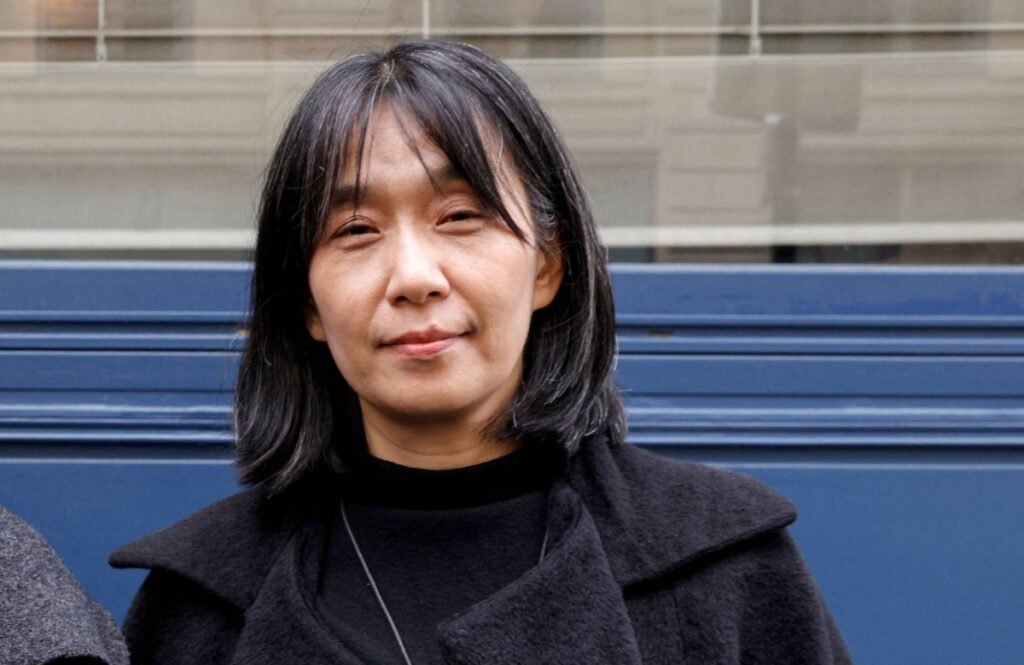South Korean author Han Kang, 53, has been awarded the Nobel Prize in Literature 2024 “for her intense poetic prose that confronts historical traumas and exposes the fragility of human life.”
The accolade makes her the first Asian female Nobel laureate and the second Korean to win a Nobel prize.
According to the Permanent Secretary of the Swedish Academy, Mr Mats Malm, Han Kang’s works confront historical traumas and invisible sets of rules, and, in each, she exposes the fragility of human life.
“She has a unique awareness of the connections between body and soul, the living and the dead, and in her poetic and experimental style has become an innovator in contemporary prose,” he said on October 10, thus ending speculation on one of the most anticipated announcements of the prizes named after the inventor of dynamite, Alfred Nobel.
Han Kang becomes only the 18th woman to win the Nobel Prize for literature since the prize was established in 1901. Nadine Gordimer of South Africa, who won the prize in 1991, remains the only woman from Africa to have been awarded the prize for literature.
Overall, 117 prizes have been awarded, with multiple writers being named as winners on four occasions, bringing the total number of laureates to 121.
The first joint laureates were José Echegaray y Eizaguirre and Fredrick Mistral, who were jointly awarded in 1904. The other joint winners were recognized in 1917, 1966 and 1974 respectively.
Whereas it is common for the prizes in sciences to be awarded to joint winners, it rare for the literature prize to be shared.
“The science prizes are often awarded jointly, as the achievement is jointly, or for doing things that are very close to each other,” said Peter Englund, who served as the Permanent Secretary of the Swedish Academy between June 2009-May 2015.
In the history of the prize, only two authors — Boris Pasternak and the French philosopher, Jean Paul Sartre — have declined the honour. Pasternak declined in 1958 and Sartre in 1964.
Although Pasternak had accepted the prize, his country, the Soviet Union, put him under pressure to decline. Sartre never accepted any official honours throughout his life.
The prize amount for 2024 is set at Swedish kronor 11.0 million, translating to about $1 million with the Kroner exchanging at 10.74 to the greenback.
Betting companies had placed odds for Can Xue of China, Haruki Murakami of Japan, Margaret Atwood of Canada and Salman Rushdie (British American) as among the most likely authors to win this year’s Nobel prize. The Chinese avant garde author Can, 70 had been tipped as the author with highest odds of winning.
Han Kang, the daughter of a novelist and this year’s Nobel laureate, rose to international fame with her short novel, The Vegetarian, which traces an anorexic woman’s descent into mental illness and depression due to neglect from her family. The book, translated into English by Deborah Smith, became the first Korean language novel to win the International Booker Prize for fiction in 2016.
Among other accolades, Han Kan, also a mucisian, has won the Korean Novel Award for her novella, Baby Buddha (1999), Today’s Young Artist Award (2000) and the 2010 Dong-in Literary Award for her other work, Breath Fighting. Her next novel will be published in English next year.
Hers now becomes the fourth Nobel prize to be awarded this week after the prizes for Chemistry, Physics and Medicine. The Peace Prize will be awarded on Friday, October 11 and the Economics Prize on Monday next week.



